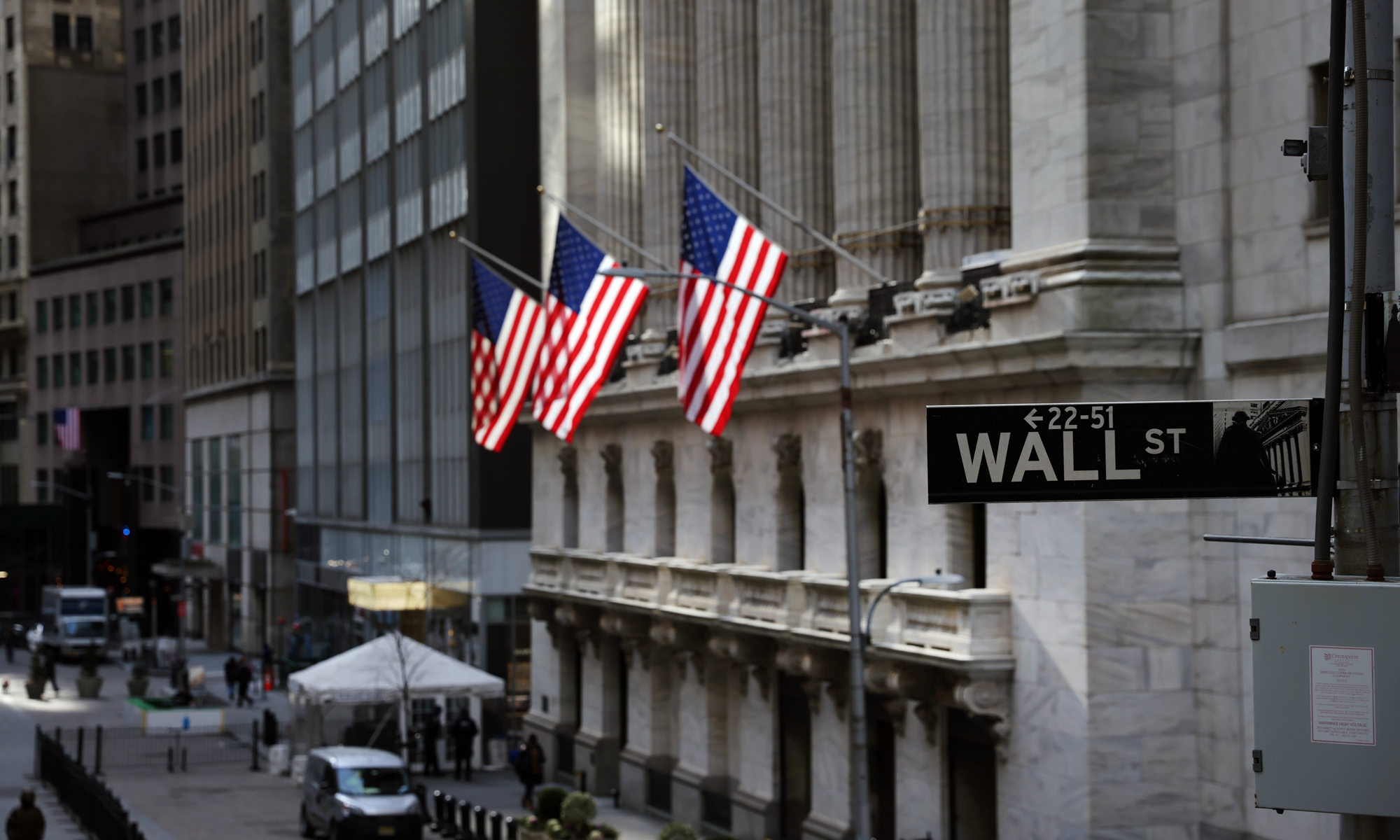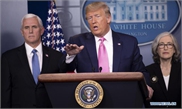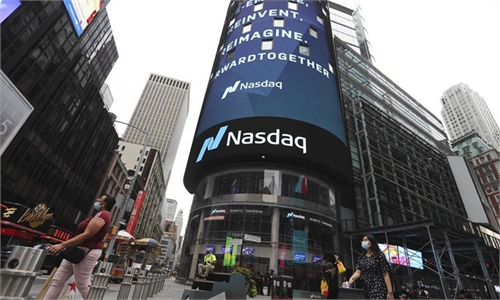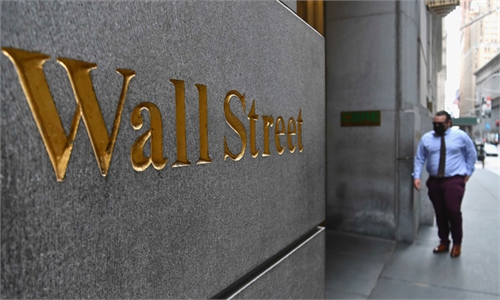Wall Street soars, deepens America’s divisions

Wall Street Photo: AFP
As the US' political center, Washington has always been the focus of global attention. Most of the recent news regarding the US' election happened in Washington DC. But there is another, perhaps more important, center in the US, and that is New York City. That's why terrorists targeted the twin towers of the World Trade Center, next to Wall Street, in New York on September 11, 2001.If the US is a business, then Washington is just a trading floor. But the company that is engaged in this business is headquartered on Wall Street in New York. Wall Street is a powerful emblem of the US, and is a key to solving the mystery of the current and serious divisions of American society.
Since the beginning of this century, an important force influencing the dramatic changes in American society has come from the capital groups represented by Wall Street. Indeed, Wall Street not only accelerates changes in American society, but also expands the US' influence to the whole world.
I have kept some of the newspapers published 20 years ago when 9/11 attacks happened. They recorded the stormy impact of the terrorist attack on US financial markets. The US stock market opened on September 17, 2001 after a week's suspension, and the Dow plunged nearly 700 points, and an eye-catching headline read: "$590B HIT."
Many people believe that the collapse of Wall Street will be like a flood that bursts its banks. If this ever happened it will drag the US into an abyss of continuous decline. But that was not what happened. In October 2007, the Dow broke the record of 14,000 points.
Then came the 2008 financial crisis. But Wall Street was not knocked down either. As always, every crisis is an opportunity for capital to squeeze more profits.
From the outbreak of the COVID-19 pandemic at the beginning of 2020 to today, Wall Street has come out with a beautiful V-shaped recovery. The stocks of the enterprises with the highest market value are repeatedly hitting record highs. The wealth has pleased capital oligarchs.
Capital is merciless and provides endless movement for profits. This is the nature of capital revealed by Karl Marx in his book Capital. Capital will not change this characteristic just because the poor become poorer or people die in the pandemic.
However, the madness of capital comes at a price. From 9/11 attacks to today, what people have seen is the accelerating accumulation of capital to the richest tycoons and consortia in the fiercest fluctuations of the market. At the same time, the gap between the rich and the poor in the US is increasing, and its welfare system is in a state of failure. Polarization has entered a new era of extremes.
According to data from the Federal Reserve, as of the end of March 2020, the top 1 percent and 10 percent of Americans accounted for 30.4 percent and 69 percent of all household wealth in the US. By contrast, the bottom 50 percent of the population only accounted for 1.9 percent of all wealth. There were about 40 million people in poverty, and at least 500,000 homeless every night.
The capital flow in the 21st century presents an unprecedented momentum of acceleration and expansion. While creating more wealth, it also compresses the development opportunities and living space of the very lower and middle classes.
French President Emmanuel Macron warned in the Q&A session after his speech at the 2021 Davos forum that capitalism and the market economy provide opportunities for "progression" for the middle class, but the system had "broken."
"Hundreds and thousands of people throughout the world had this feeling of losing their usefulness," he said.
The globalization promoted by capital has formed a strange circle that "the rich will always be rich and the poor will always be poor." It has accelerated the division of American values, and spread this division to the whole world. It presents a century-long problem to global governance.
The author is a senior editor with People's Daily, and a senior fellow of Chongyang Institute for Financial Studies at Renmin University of China. opinion@globaltimes.com.cn




